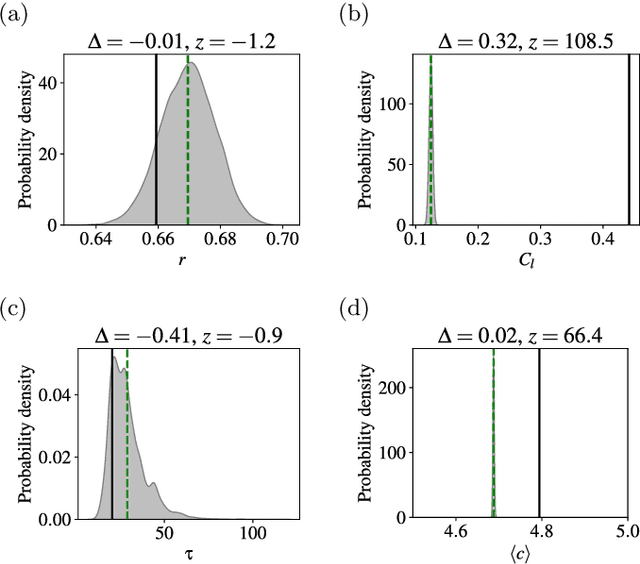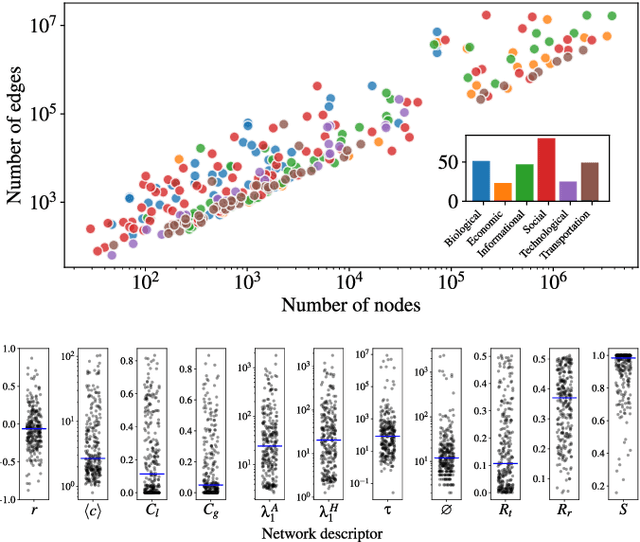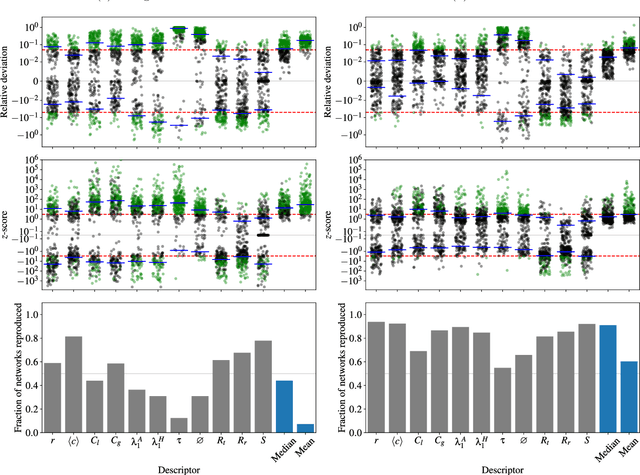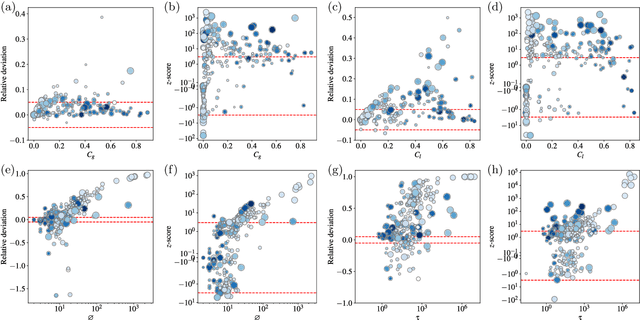Systematic assessment of the quality of fit of the stochastic block model for empirical networks
Paper and Code
Jan 05, 2022



We perform a systematic analysis of the quality of fit of the stochastic block model (SBM) for 275 empirical networks spanning a wide range of domains and orders of size magnitude. We employ posterior predictive model checking as a criterion to assess the quality of fit, which involves comparing networks generated by the inferred model with the empirical network, according to a set of network descriptors. We observe that the SBM is capable of providing an accurate description for the majority of networks considered, but falls short of saturating all modeling requirements. In particular, networks possessing a large diameter and slow-mixing random walks tend to be badly described by the SBM. However, contrary to what is often assumed, networks with a high abundance of triangles can be well described by the SBM in many cases. We demonstrate that simple network descriptors can be used to evaluate whether or not the SBM can provide a sufficiently accurate representation, potentially pointing to possible model extensions that can systematically improve the expressiveness of this class of models.
 Add to Chrome
Add to Chrome Add to Firefox
Add to Firefox Add to Edge
Add to Edge